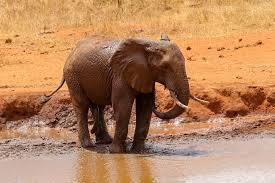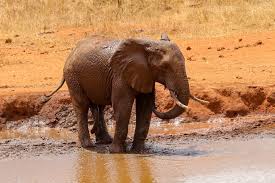
Is Africa still the land of opportunities?
For centuries Africa was a place to start from scratch. The land is as immense as its resources, and the local market alone would be enough to let any company flourish on the spot, let alone supplying foreign markets. Today, Africa is providing an excellent observation field for industrial development and measuring the effects of Foreign direct investment. Bloomberg reporter Noah Smith writes: “as China itself has shown in dramatic fashion during the past few decades, attracting foreign capital can be a key part of an effective growth strategy. When a company from China — or the U.S., Japan, France or elsewhere — employs Africans to make clothes, program software or build houses, African workers immediately share the benefits. This also provides income to local African entrepreneurs, who create new businesses to sell things to the foreign companies and their employees.” Many African regions are fully embedded in the global economy. Some as sub-segments of other markets, such as the Moroccan industry which has successfully transferred a large part of European manufacturing onto its soil; whereas other are self-standing, such as Nigeria’s oil-exporting sector, but all have in common FDI as part of their success stories. Still, the three main assets of Africa - space, resources and population - are a mine of opportunities.
Water everywhere, and not a drop to drink.
In the eyes of many experts, water is the place to start. Because safe and accessible water is a sine qua non supply of everything else, it is considered a stepping stone equivalent to political and economic stability. The African Development Bank recently reported that “the Senior Advisor to the President of the African Development Bank for Inclusive and Green Growth, Prof. Kevin Urama, has underscored the critical role of water in achieving long-term poverty reduction and economic growth in Africa. Speaking at a gathering of world water leaders in Stockholm, Sweden, Urama outlined the new strategic priorities of the AfDB and the centrality of water to these goals.” Water is the necessary condition to health, agriculture, industrial development, rationalized urban development, and many other fields. In other words, no water, no development; that simple.
Espousing the African parameters and mindset
In large part, previous endeavors to develop the African heartland, or in it, have failed because of a top-down approach, which has proven unsuitable for such settings. Copycatting solutions which have worked in Western and developed countries, and duct-taping them to African soil, simply doesn’t work. Too many parameters differ from those in which the solution was initially designed. Water treatment plants in Europe and America (and increasingly in China) are well-oiled machines, but rely on two types of infrastructure, which cannot be consistently relied on, in Africa: water networks, and power. To remedy the situation, for instance, Veolia Water Technology Africa has developed safe water solutions specifically for the African market. Veolia’s bottom-up approach based on the needs of end users and on locally available resources is a viable way to secure development. But for Veolia, development is only real if it makes the most of local human and economic resources. To this end, the French multinational is creating a real industrial and economic ecosystem that allows for sustainable social development. That is why in addition to focusing the design on the local users, Veolia aims to entrust the local population with the production, through its South African factory, namely.
The Chinese risk and opportunity
China has been investing considerable funds into Africa since 2000. Brookings reported in early September of 2018 that “this week, as the Forum on China-Africa Cooperation (FOCAC) opened, President Xi Jinping announced that China will be providing $60 billion in financial support to Africa. President Xi gave the following breakdown for the partial distribution of funds: $20 billion in credit lines, $15 billion in grants, interest-free loans and concessional loans, and $10 billion in investment financing”, a trend which is both old and increasing in volume. But along with Chinese funds, comes Chinese influence. It is essential that Africa does not reproduce the pattern of its financer, by letting FDI fuel its growth at the expense of its environment, which holds its valuable resources, and supports its population.
Nigeria has just prolonged its welcoming of international funds, as recently reported by PlusAfrica, “According to the ministry, key foreign investors, who met at various meetings with the Nigerian government delegation, expressed interest in scaling up investment in the country, saying Nigeria was still the best investment destination in Africa with enormous natural and human resources.” Recently the Chinese company Elion Resources Group, has signed an agreement with the Nigerian government to continue its exploration of the country opportunities in the fields of agriculture and energy resources in particular. Chinese investments are sometimes received with mixed feelings in Africa, particularly because of their ecological impact. The arrival of the green company Elion Resources is therefore a rather good sign in this context.
Africa continues to attract foreign investment and there is still a significant margin for development, as well as a margin for improvement in the adaptability of these companies that come to settle there. Water, agriculture, telephony or raw materials: there is no shortage of promising areas. The global engineering market is bubbling with new solutions which have the advantage of mobility, or off-grid capacities. This will enable the pursuit of the mutually benefiting relationship between African businesses and foreign investors.
For centuries Africa was a place to start from scratch. The land is as immense as its resources, and the local market alone would be enough to let any company flourish on the spot, let alone supplying foreign markets. Today, Africa is providing an excellent observation field for industrial development and measuring the effects of Foreign direct investment. Bloomberg reporter Noah Smith writes: “as China itself has shown in dramatic fashion during the past few decades, attracting foreign capital can be a key part of an effective growth strategy. When a company from China — or the U.S., Japan, France or elsewhere — employs Africans to make clothes, program software or build houses, African workers immediately share the benefits. This also provides income to local African entrepreneurs, who create new businesses to sell things to the foreign companies and their employees.” Many African regions are fully embedded in the global economy. Some as sub-segments of other markets, such as the Moroccan industry which has successfully transferred a large part of European manufacturing onto its soil; whereas other are self-standing, such as Nigeria’s oil-exporting sector, but all have in common FDI as part of their success stories. Still, the three main assets of Africa - space, resources and population - are a mine of opportunities.
Water everywhere, and not a drop to drink.
In the eyes of many experts, water is the place to start. Because safe and accessible water is a sine qua non supply of everything else, it is considered a stepping stone equivalent to political and economic stability. The African Development Bank recently reported that “the Senior Advisor to the President of the African Development Bank for Inclusive and Green Growth, Prof. Kevin Urama, has underscored the critical role of water in achieving long-term poverty reduction and economic growth in Africa. Speaking at a gathering of world water leaders in Stockholm, Sweden, Urama outlined the new strategic priorities of the AfDB and the centrality of water to these goals.” Water is the necessary condition to health, agriculture, industrial development, rationalized urban development, and many other fields. In other words, no water, no development; that simple.
Espousing the African parameters and mindset
In large part, previous endeavors to develop the African heartland, or in it, have failed because of a top-down approach, which has proven unsuitable for such settings. Copycatting solutions which have worked in Western and developed countries, and duct-taping them to African soil, simply doesn’t work. Too many parameters differ from those in which the solution was initially designed. Water treatment plants in Europe and America (and increasingly in China) are well-oiled machines, but rely on two types of infrastructure, which cannot be consistently relied on, in Africa: water networks, and power. To remedy the situation, for instance, Veolia Water Technology Africa has developed safe water solutions specifically for the African market. Veolia’s bottom-up approach based on the needs of end users and on locally available resources is a viable way to secure development. But for Veolia, development is only real if it makes the most of local human and economic resources. To this end, the French multinational is creating a real industrial and economic ecosystem that allows for sustainable social development. That is why in addition to focusing the design on the local users, Veolia aims to entrust the local population with the production, through its South African factory, namely.
The Chinese risk and opportunity
China has been investing considerable funds into Africa since 2000. Brookings reported in early September of 2018 that “this week, as the Forum on China-Africa Cooperation (FOCAC) opened, President Xi Jinping announced that China will be providing $60 billion in financial support to Africa. President Xi gave the following breakdown for the partial distribution of funds: $20 billion in credit lines, $15 billion in grants, interest-free loans and concessional loans, and $10 billion in investment financing”, a trend which is both old and increasing in volume. But along with Chinese funds, comes Chinese influence. It is essential that Africa does not reproduce the pattern of its financer, by letting FDI fuel its growth at the expense of its environment, which holds its valuable resources, and supports its population.
Nigeria has just prolonged its welcoming of international funds, as recently reported by PlusAfrica, “According to the ministry, key foreign investors, who met at various meetings with the Nigerian government delegation, expressed interest in scaling up investment in the country, saying Nigeria was still the best investment destination in Africa with enormous natural and human resources.” Recently the Chinese company Elion Resources Group, has signed an agreement with the Nigerian government to continue its exploration of the country opportunities in the fields of agriculture and energy resources in particular. Chinese investments are sometimes received with mixed feelings in Africa, particularly because of their ecological impact. The arrival of the green company Elion Resources is therefore a rather good sign in this context.
Africa continues to attract foreign investment and there is still a significant margin for development, as well as a margin for improvement in the adaptability of these companies that come to settle there. Water, agriculture, telephony or raw materials: there is no shortage of promising areas. The global engineering market is bubbling with new solutions which have the advantage of mobility, or off-grid capacities. This will enable the pursuit of the mutually benefiting relationship between African businesses and foreign investors.


 The social impact of FDI (Foreign Direct Investment) in Africa: where do we go from here?
The social impact of FDI (Foreign Direct Investment) in Africa: where do we go from here?




 Companies
Companies